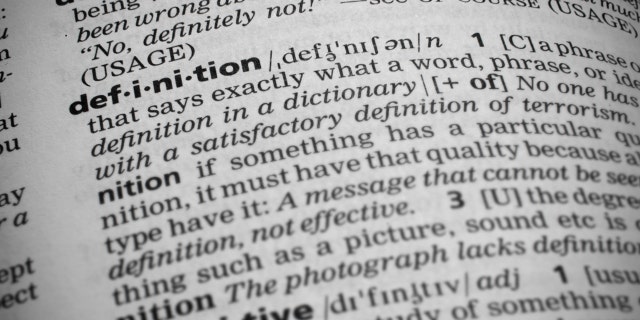
When I toiled in the vineyards of television news, often among my duties was the recording of the video news feed from the network.
During finite periods of time (generally later afternoon, about an hour before local news broadcasts), via closed circuit, the network, in this case, CBS, would offer fresh video material to the affiliates to slice/dice and/or cut/paste as they saw fit to fill holes in their pending local broadcasts.
Very often, a specific piece from the network was not quite ready. On those occasions, these character generated words would appear on screen:
“Efforting… keep tape at speed.”
That last part meant if you waited to start recording until the video was finally sent, you were out of luck, since given of the foibles of the state-of-the-art technology of the day, it took a few seconds for the physical tape in your video recorder to actually get up to recording speed.
If your tape was not at speed, the first few words of audio would sound like HAL 9000 singing “Daisy” as Dave Bowman methodically set about unscrewing his Plexiglas innards.
“Efforting,” meant just that.
It meant those poor, underpaid, overworked network schlubs on the sending end were busting their humps during this finite period of time to get this video finished and out to us poor, underpaid, overworked schlubs on the affiliate station receiving end.
(Schlub yin/yang).
To make an already long story short (I guess actually, it’ll make it longer, sorry), today when someone asks me for the random status update, I’ve been known, on occasion, to respond, “Efforting. Keep tape at speed.”
This is often greeted by a quizzical look, accompanied, no doubt, by one of these two thoughts:
A. No clue what he’s talking about, but I suspect it’s a dated reference.
B. He doesn’t have what I want.
All of which led me to ponder the shelf-life of words, phrases and cultural linguistic shorthand. Some of which I grow increasingly weary:
“At the end of the day…”
“It is what it is…”
“To be transparent…” (We used to call this “being honest.”)
“Reaching out…” (This used to be known as “gimme a call.”)
“Going forward…”
Another one that grates on my linguistic expectations is what I consider sportscasters’ misuse of the word, “scuffling.” “Santana’s been scuffling a bit as of late…” Huh? I thought “scuffling” meant fighting or scrapping but lately, it’s used as though it means, “struggling.”
Maybe there’s a new definition I’m not aware of. But since I looked it up in the Urban Dictionary, I tend to think not.
And my new all-time recent fave,
“I know, right?”
Lest we forget the words and phrases which seem unique to each generation, mine included. Then we say them out loud in the presence of others.
And our offspring just look at us and sigh. Us late wave boomer can lay claim to these pearls:
“Get down,” “bodacious,” “right on,” “boogie,” “booking” (as in going fast).
Which reminds me of the time in the television news vineyard toiling years when a colleague and I booked into Sonic in Junction City for a late lunch because we were in a hurry (no doubt to be back to Topeka to get the tape up to speed by 4 p.m.)
After a burgerless 15 minutes, I re-punched the red button and offered,
“Yo! What’s the status of those burgers?”
The reply was something to the effect of, “Doin’ the best we can in here.”
Clearly the Sonic equivalent of “Efforting. Keep tape at speed.”
Mike Matson’s column appears every other Sunday in The Mercury. Follow his blog at mikematson.com




